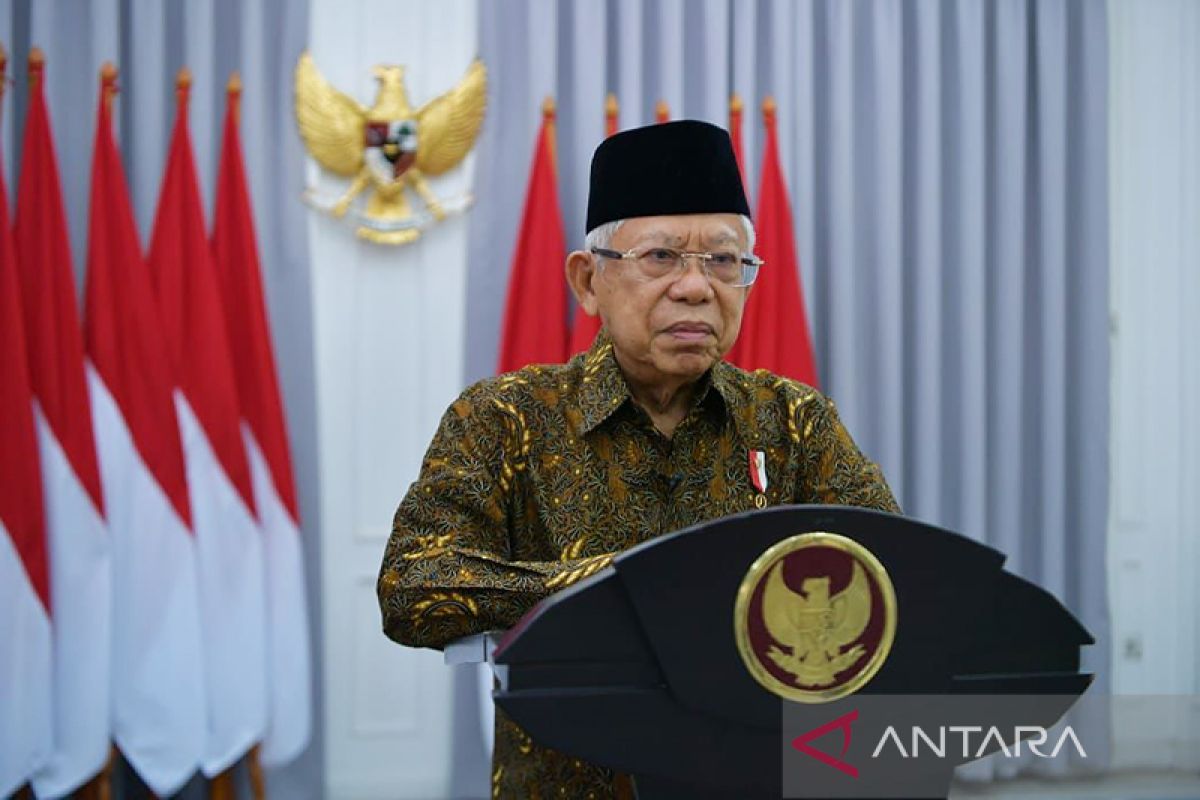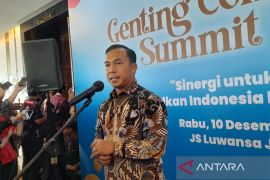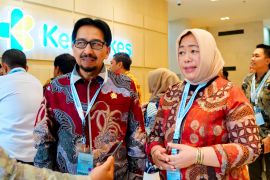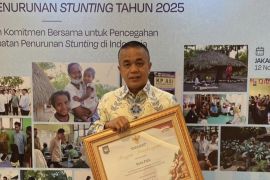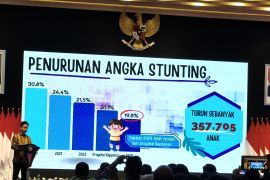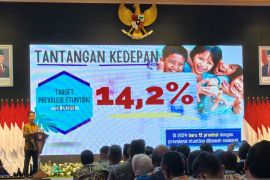"Several factors contribute to efforts to reduce stunting, including environmental health, especially related to sanitation and the availability of proper drinking water," Amin noted at the Vice President's official residence here on Saturday.
He remarked that the government had aimed at increasing access to drinking water and proper sanitation facilities in an effort to reduce the rate of stunting.
Amin delivered the statement during the third online meeting of the Association of Indonesian Environmental Health Experts.
They targeted 100 percent of the households to have access to safe drinking water by 2024 and 90 percent of households to have access to proper sanitation facilities.
The goal was stipulated in Presidential Regulation Number 72 of 2021 on the Acceleration of Stunting Reduction.
Amin noted that in the last three years, the coverage of adequate drinking water facilities had risen by 1.5 percent and the coverage of proper sanitation had increased by 2.9 percent, so the percentage of households with access to proper drinking water had reached 90.7 percent, while households with access to proper sanitation facilities had reached about 80.2 percent.
He urged everyone to commit to this goal, as only two years were left in realizing it.
The government is striving to pursue this, as these nutritional problems could stagnate efforts to develop human resources and cause economic issues.
The vice president explained that stunting compromised the intelligence and cognitive abilities apart from disrupting the metabolism, thereby making its sufferers prone to non-communicable diseases, such as heart diseases and diabetes. These would affect productivity in the future, he stated.
Stunting also caused economic losses, as it took up two to three percent of the state's GDP, he remarked.
In Indonesia, stunting-related issues caused annual losses to the tune of some Rp300 trillion.
The vice president stated that the government was striving to reduce the stunting rate -- currently standing at 24.4 percent -- to 14 percent in 2024.
"This means that in the next two years or so, we must be able to reduce the prevalence of stunting by more than 10 percent," he stated.
Related news: Bali selected to host 2024 World Water Forum: ministry
He expected the meeting to produce meaningful policy formulations and recommendations, including with regard to efforts to reduce stunting prevalence in Indonesia.
Central Executive Chairman of the Association of Indonesian Environmental Health Experts Arif Sumantri stated that three strategic issues were discussed at the meeting, including transformation in primary services, referral services, medical human resources, medical technology, and post-COVID-19 health financing.
It also discussed the impact of climate change that is closely related to the availability of clean water and the use of the demographic bonus.
Related news: Availability of clean water, proper sanitation can reduce poverty: VP
Translator: Desca L N, Mecca Yumna
Editor: Rahmad Nasution
Copyright © ANTARA 2022
